#clive james
Text
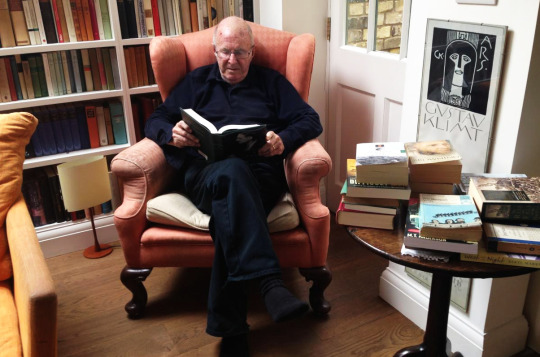
"Among artists without talent Marxism will always be popular, since it enables them to blame society for the fact that nobody wants to hear what they have to say."
Clive James
583 notes
·
View notes
Photo

Devotees who say that À la recherche du temps perdu reminds them of a cathedral should be asked which cathedral they mean. It reminds me of a sandcastle that the tide reached before its obsessed constructor could finish it; but he knew that would happen, or else why build it on a beach?
- Clive James
#james#clive james#quote#literary criticism#marcel proust#proust#sand#beach#femme#sandcastle#literature#culture
60 notes
·
View notes
Text
Vivian Leopold James - 1939-2019
Australia's greatest export? Well, Clive James certainly beats Skippy the Bush Kangaroo.

Not only a man that I wanted to have me from a very young age, but also, as I grew older, a man I would have liked to have had as a friend (sexual or not).

Poet, TV critic, writer, intellectual, broadcaster, journalist and professional Australian. He left Sydney in 1962 for Cambridge and (apart from visits) never went back.

He had an intense regard but also a ready wit and smile and a fantastic voice and broadcast delivery. Check out his "Postcard" travelogue series or "Clive James on TV".
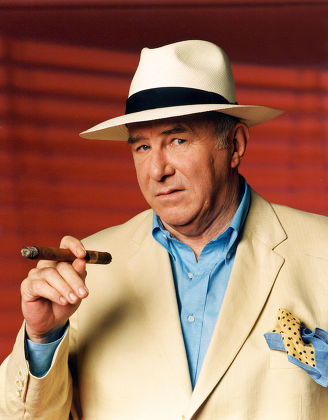
A heavy smoker, not known for cigars, but there are a few (like this publicity still for "Postcard from Havana". No pipe or glove photos as far as I can find. Let me know if you spot any.

Even in later years, he retained his wit, his intellect and his looks.
30 notes
·
View notes
Quote
Any poem that does not just slide past us like all those thousands of others usually has an ignition point for our attention.
Clive James, from his essay “Little Low Heavens”, published in Poetry Magazine, October 23rd, 2008
#clive james#quotes#essays#words#found*#on poetry#very on the fence about this essay tbh but this is an interesting point
32 notes
·
View notes
Text
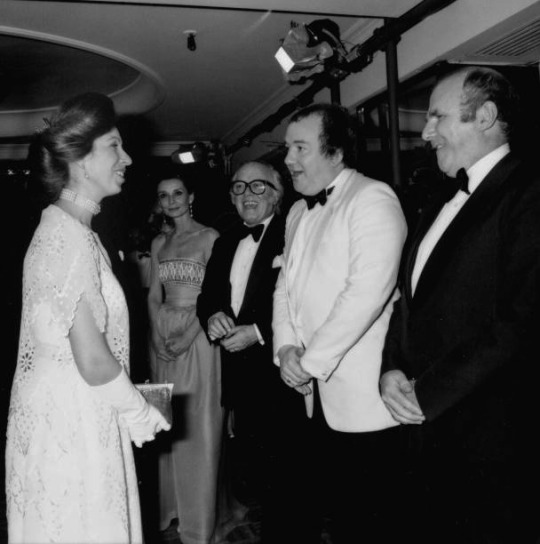
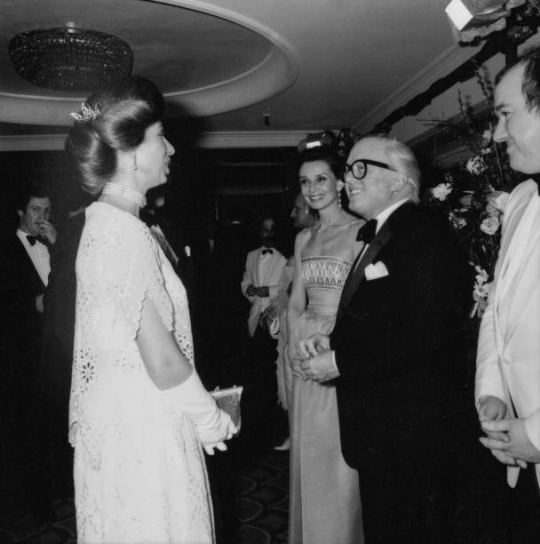
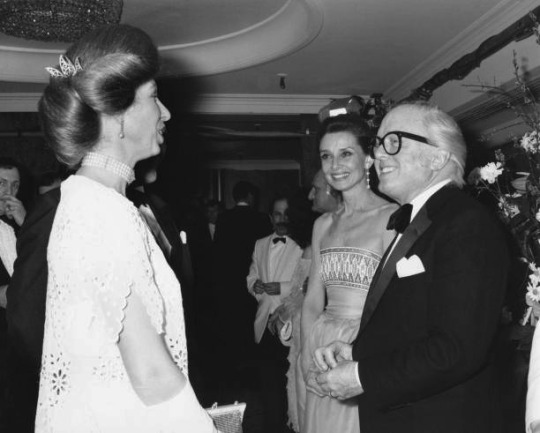
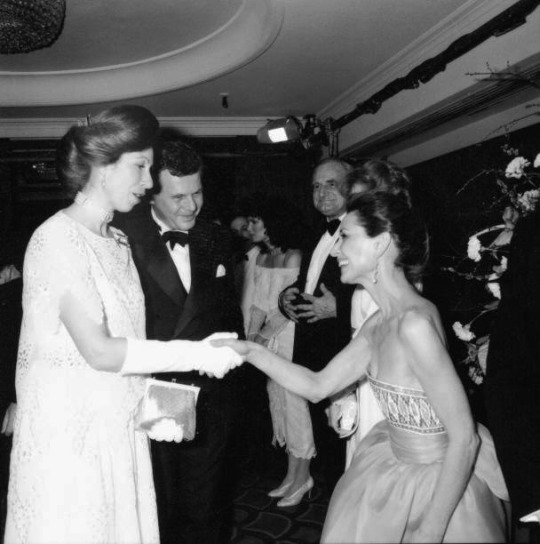
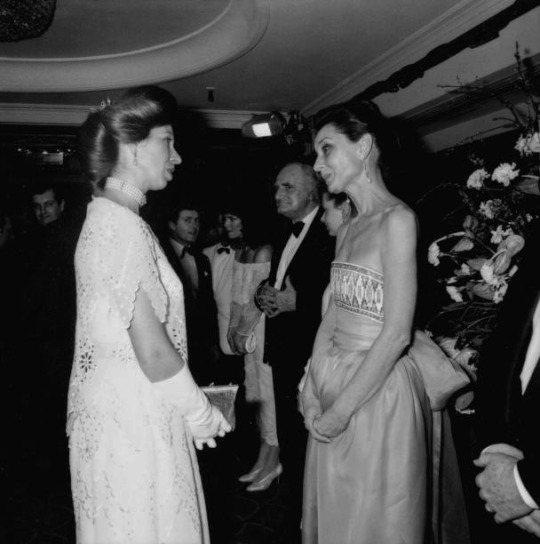
Her Royal Highness The Princess Royal, Audrey Hepburn, Lord Attenborough, Mel Smith, and Clive James at the British Academy Film and Television on 25 March 1984 at the Grosvenor House, Park Lane, London.
#audrey hepburn#old hollywood glamour#old hollywood#fashion#classic#vintage#photography#style#1980s#1984#baftas#bafta#princess margaret#clive james#mel smith
10 notes
·
View notes
Note
hey do you like uhhhh books
'The Book of my Enemy Has Been Remaindered'
by Clive James
The book of my enemy has been remaindered
And I am pleased.
In vast quantities it has been remaindered
Like a van-load of counterfeit that has been seized
And sits in piles in a police warehouse,
My enemy's much-prized effort sits in piles
In the kind of bookshop where remaindering occurs.
Great, square stacks of rejected books and, between them, aisles
One passes down reflecting on life's vanities,
Pausing to remember all those thoughtful reviews
Lavished to no avail upon one's enemy's book --
For behold, here is that book
Among these ranks and banks of duds,
These ponderous and seemingly irreducible cairns
Of complete stiffs.
The book of my enemy has been remaindered
And I rejoice.
It has gone with bowed head like a defeated legion
Beneath the yoke.
What avail him now his awards and prizes,
The praise expended upon his meticulous technique,
His individual new voice?
Knocked into the middle of next week
His brainchild now consorts with the bad buys
The sinker, clinkers, dogs and dregs,
The Edsels of the world of moveable type,
The bummers that no amount of hype could shift,
The unbudgeable turkeys.
Yea, his slim volume with its understated wrapper
Bathes in the blare of the brightly jacketed Hitler's War Machine,
His unmistakably individual new voice
Shares the same scrapyard with a forlorn skyscraper
Of The Kung-Fu Cookbook,
His honesty, proclaimed by himself and believed by others,
His renowned abhorrence of all posturing and pretense,
Is there with Pertwee's Promenades and Pierrots--
One Hundred Years of Seaside Entertainment,
And (oh, this above all) his sensibility,
His sensibility and its hair-like filaments,
His delicate, quivering sensibility is now as one
With Barbara Windsor's Book of Boobs,
A volume graced by the descriptive rubric
"My boobs will give everyone hours of fun".
Soon now a book of mine could be remaindered also,
Though not to the monumental extent
In which the chastisement of remaindering has been meted out
To the book of my enemy,
Since in the case of my own book it will be due
To a miscalculated print run, a marketing error--
Nothing to do with merit.
But just supposing that such an event should hold
Some slight element of sadness, it will be offset
By the memory of this sweet moment.
Chill the champagne and polish the crystal goblets!
The book of my enemy has been remaindered
And I am glad.
#I mean short answer is yes#but long answer is that I really just wanted to quote this poem#the book of my enemy has been remaindered#clive james
8 notes
·
View notes
Text
The Poetry of Charlotte Mew
"Born into a family racked by childhood death, insolvency and mental illness, she compensated for the instability by sticking, metrically, to a measured poetic tranquillity that some today might call severe." --Clive James
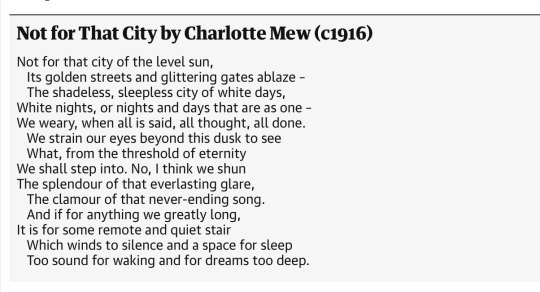
"Charlotte Mew should be much better known than she is. She had some significant literary champions in her own time, but financial and family troubles continued to dog her, and she was eventually committed to an institution, where she killed herself." - Clive James
3 notes
·
View notes
Text
In the three essential volumes, the balanced triad of Philip Larkin’s achievement, all the poems are poised vibrantly in the forcefield of tension between his profound personal hopelessness and the assured command of their carrying out. Perfectly designed, tightly integrated, making the feeling of falling apart fit together, they release, from their compressed but always strictly parsable syntax, sudden phrases of ravishing beauty, as the river in Dante's Paradise suggests by giving off sparks that light is what it is made of.
— Clive James on poet Philip Larkin
from his review of the 1988. publication of Collected Works (from Faber. ed. by Anthony Thwaite)
[note. the three essential volumes being The Less Deceived, The Whitsun Weddings, and High Windows.]
#jesus that’s good 🍃#clive james#philip larkin#dante#dante alighieri#faber#literature#quote#poetry#poem and poetry#poem#english literature#essay#Larkin#the less deceived#whitsun#high windows#collected works#book
7 notes
·
View notes
Text
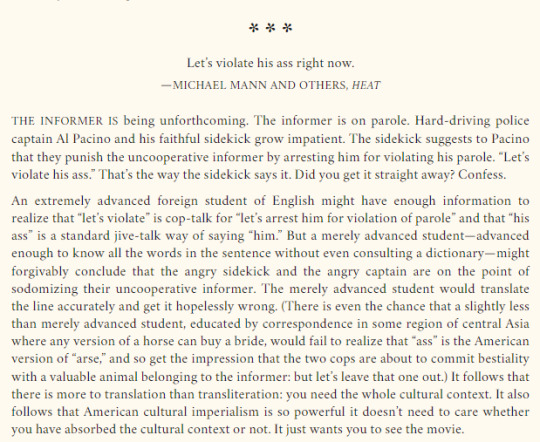
British and Australian audiences—to name only two English-speaking markets for the American mass media—are in the position of merely advanced students. For them a line like this might as well have a subtitle. I myself, when I first saw Heat in 1996, had been absorbing the American mass media for fifty years at least. I had seen hundreds of cop shows in which the words “violate” and “parole” had been used in close connection. But when I heard “violate” without “parole” I had to stop and think—not an activity that Heat otherwise encourages. It is a highly enjoyable movie. (I mean as opposed to a lowly enjoyable movie like Where Eagles Dare, in which the fun comes from the stupidity.) Michael Mann’s movies are well planned and look very good. His years in the glossy sweatshop of Miami Vice gave him a feeling for compressed narrative and a mastery of pastel composition transferable to any setting, including the morgue. Both qualities are well on display in Mann’s Manhunter, the first and by far the most interesting film that draws on the dubious charm of the serial killer Hannibal Lecter. Mann is a director who can make even cannibalism into a fashion statement. With Heat he attained his apotheosis. Unlimited mayhem never looked so balletic. The gun battles are sensational: rather more sensational, one is bound to reflect, than any gun battle could ever be in real life, where a flak jacket would not be enough to protect Al Pacino’s head if even one bank robber were shooting at him with a pistol. In the film, Val Kilmer and Robert De Niro both shoot at him for minutes on end with automatic weapons. Fusillades of bullets swerve around his head by magic. In real life he would have only his admittedly formidable hairpiece to keep the hurtling slugs out of his brain. But the director isn’t transcribing life, he is choreographing its myths, and especially the myths of male conflict: Mann is a mano a mano man. He thinks in battles. In a Mann film, even when the hero is alone on screen with a telephone, he battles with the telephone.
In Heat, the most sensational battle of all is the hamming contest in the coffee shop between Pacino and De Niro. These two actors have never faced each other on screen before. Each actor knows that this is the shoot-out the audience has been looking forward to for years. Each actor fights with his best weapons. Al Pacino’s standard weapon is to SHOUT AT RANDOM. Elsewhere in the movie he employs it freely, but in this key scene he abandons it. Robert De Niro’s standard weapon is to repeat a line half a dozen times with slight variations of emphasis. “Clean up and go home,” he tells Ashley Judd. “Clean up and go home.” Hypnotized by this mantra, Ashley Judd cleans up and goes home to Val Kilmer, so thoroughly has her will been sapped. De Niro’s power of repetition is a tried and tested standard weapon. A standard weapon, tried and tested, is what it is. Tried and tested. Tried and tested. But in this scene he abandons it.
In the coffee shop, the two knights of the screen have taken off their helmets and laid aside the axe and mace. They have upgraded their weaponry. They are about to go nuclear. They will fight in close-up. Pacino fights with ruminative pauses and a new, noiseless smacking of the lips: a deadly weapon. De Niro fights with a new pout. It is not as extreme as Val Kilmer’s pout, but Val Kilmer was born pouting, like June Allyson: Val Kilmer can’t not pout. De Niro’s new pout is a vestigial, almost subcutaneous pout, a pout more thought than deed. He is proving that he can pout without moving his lips. He also looks sideways without moving his head. He looks sideways only with his eyes: a new subtlety. (All modern screen actors look sideways as much as possible while speaking. There is one called Michael Madsen who will face away from the camera while speaking, giving you a close-up of the back of his head.) Gradually you realize that Pacino and De Niro, like the characters they are playing, will both walk away from this battle. The fix is in. The two characters they are playing respect each other. But the characters could not possibly respect each other as much as the actors playing them respect each other.
Pacino and De Niro have each grown used, during a long career, to acting any interlocutor off the screen. They have met at last only on the tacit understanding that they will act each other on to the screen. Exactly measured by the number of close-ups, their mutual respect will be made exhaustively manifest. The outcome will be a draw. But they have to make it look good. Making it look good, indeed, is the only reason for doing it. Making it sound good is a secondary consideration. To prove this, each man reaches for the deadliest weapon of all: silence. Personally I find this a relief from the dialogue, which isn’t bad, but is not very good. In the age of The Big Sleep and The Maltese Falcon, a similar exchange would have been over and done with in a minute at most, with each actor delivering a line memorable forever. But that was then, and this is now. Now the actor does not deliver lines. He delivers himself, usually like a truck full of eggs being unloaded one by one. Heat has a structure, and each of its carefully assembled component scenes has a mood. What it lacks is lines, and why not? It is after something bigger than verbal quotability. But in that case, why throw in a line like “Let’s violate his ass”? The only conclusion you can reach is that nobody knew it was difficult.
#dfgdfhgaFGSDJKFGSDHJFGS#this is genius#I had forgotten about the ass violating#clive james#notes for the michael mannzine
13 notes
·
View notes
Photo
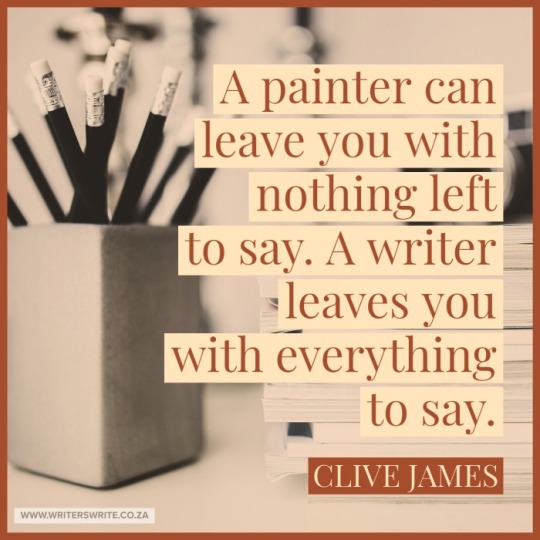
Quotable – Clive James
Read more about the author here
21 notes
·
View notes
Text
A raconteur who appeared to toss off wit and pith without trying, like it was ballast from some greater store of genius that never became diminished in the process.
The Fence magazine on Clive James
2 notes
·
View notes
Photo
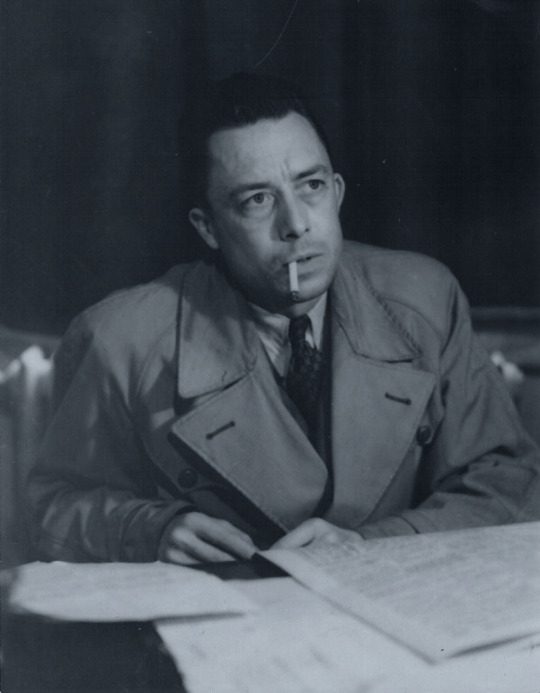
When I first read The Rebel, this splendid line came leaping from the page like a dolphin from a wave. I memorised it instantly, and from then on Camus was my man. I wanted to write like that, in a prose that sang like poetry. I wanted to look like him. I wanted to wear a Bogart-style trench coat with the collar turned up, have an untipped Gauloise dangling from my lower lip, and die romantically in a car crash. At the time, the crash had only just happened. The wheels of the wrecked Facel Vega were practically still spinning, and at Sydney University I knew exiled French students, spiritually scarred by service in Indochina, who had met Camus in Paris: one of them claimed to have shared a girl with him.
Later on, in London, I was able to arrange the trench coat and the Gauloise, although I decided to forgo the car crash until a more propitious moment. Much later, long after having realised that smoking French cigarettes was just an expensive way of inhaling nationalised industrial waste, I learned from Olivier Todd's excellent biography of Camus that the trench coat had been a gift from Arthur Koestler's wife and that the Bogart connection had been, as the academics say, no accident.
Camus had wanted to look like Bogart, and Mrs. Koestler knew where to get the kit. Camus was a bit of an actor - he though, in fact, that he was a lot of an actor, although his histrionic talent was the weakest item of his theatrical equipment - and, being a bit of an actor, he was preoccupied by questions of authenticity, as truly authentic people seldom are. But under the posturing agonies about authenticity there was something better than authentic: there was something genuine. He was genuinely poetic. Being that, he could apply two tests simultaneously to his own language: the test of expressiveness, and the test of truth to life. To put it another way, he couldn't not apply them.
- Clive James, Cultural Amnesia: Necessary Memories from History and the Arts
#james#clive james#quote#albert camus#camus#philosopher#french#the rebel#style icon#literature#smoking#trench coat
108 notes
·
View notes
Text
Some Insoluble Photo-Opportunities
In Yes Minister (or it might have been Yes, Prime Minister) there’s an exchange between Jim Hacker, MP and civil servant Sir Humphrey Appleby. Hacker complains that he has been presented with some insoluble problems. Appleby reminds him that every problem is also an opportunity, to which Hacker quips ‘in that case, you have presented me with some insoluble opportunities.’ That seems to sum up my…
View On WordPress
0 notes
Quote
Anyone who tries to get the poem [Sonnet 129 by William Shakespeare] by heart from moment to moment will find that most of the moments are based on verbal echoes, correspondences, and oppositions (“to make the taker mad;/Mad in pursuit”). If one has ever built a sonnet oneself, however unremarkable or clumsy the result, the experience must be a help in assessing the prodigious flexibility of Shakespeare’s craft within a set form, and thus in broaching the subject of whether a poem’s structure might be not just a source of astonishment in itself, but an example of metaphorical transformation in which an argument is so cleanly articulated that it transcends the real by modeling the balance of its interior forces, as the surface of a DVD generates halos by being, apparently, so clean and true.
Clive James, from his essay “Little Low Heavens”, published in Poetry Magazine, October 23rd, 2008
10 notes
·
View notes
Text
"These irresistible fragments..." #clivejames #reliableessays
As is probably clear from my reading matter, I do love a good essay; and I was recently fortunate enough to receive a review copy of a collection of Montaigne’s essays, which I’ll be covering for Shiny New Books. However, I don’t always want to read straight through a collection like this, and so had a rummage on the TBR to see what I could polyread alongside it. My eye was caught by a book which…

View On WordPress
0 notes
Text
"Your death, near now, is of an easy sort. / So slow a fading out brings no real pain."
Read it here | Reblog for a larger sample size!
#closed polls#polls#poetry#poems#poetry polls#poets and writing#tumblr poetry#have you read this#japanese maple#clive james
1 note
·
View note